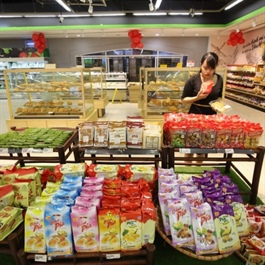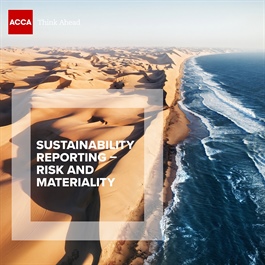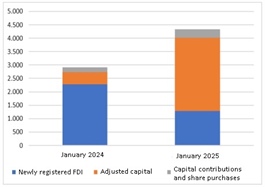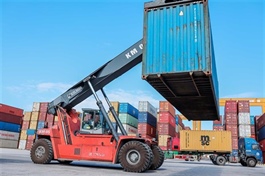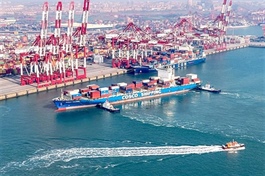Germany and Vietnam to build on prosperous ties
Germany and Vietnam to build on prosperous ties
This year, Germany and Vietnam stand on the threshold of celebrating 50 years of diplomatic relations. For us, this is a milestone that highlights the evolution of a partnership marked by mutual respect, cooperation, and shared aspirations.

Helga Margarete Barth, german Ambassador to Vietnam |
Established on September 23, 1975, this relationship has grown from initial diplomatic recognition into a robust strategic partnership that encompasses diverse fields such as foreign policy, trade, investment, human rights, science and education, and cultural exchange.
The partnership is underpinned by close people-to-people connections between our countries as well as regular high-level exchanges between senior leaders – last year, for example, German President Frank-Walter Steinmeier came to Vietnam for a two-day state visit.
Over the decades, both nations have navigated challenges and embraced opportunities, fostering a bond that not only strengthens their respective positions in the global arena but also enhances their capabilities to address pressing issues such as sustainable development and technological advancement.
As this half-century commemoration approaches, it serves as a moment to reflect on the achievements of the past while looking ahead to the promising future that lies ahead for both Germany and Vietnam.
Germany, as the largest economy in Europe, has long been recognised for its technological prowess and high-quality manufacturing. Vietnam, on the other hand, is one of the fastest-growing economies in Southeast Asia, with a burgeoning middle class and a youthful workforce.
This unique combination positions both countries for a robust trade and investment relationship. In 2025, it is anticipated that trade between Germany and Vietnam will continue to flourish, driven by a number of factors.
First is the implementation of the EU-Vietnam Free Trade Agreement, which came into effect in 2020 and has already reduced tariffs on a wide range of goods and services. This agreement has paved the way for greater market access and mutual investment opportunities, fostering a business environment conducive to growth.
The sectors expected to witness significant growth include renewable energy, manufacturing, and technology. Germany’s commitment to transitioning to renewable energy aligns perfectly with Vietnam’s goals of sustainable development.
As Vietnam seeks to reduce its carbon footprint and increase its reliance on renewable sources, German companies specialising in solar, wind, and hydroelectric power can play a crucial role in this transformation.
Moreover, Vietnam’s burgeoning tech ecosystem presents an attractive opportunity for German investors. The country has become a hotbed for startups, particularly in e-commerce, fintech, and software development. German companies can leverage Vietnam’s skilled workforce and competitive labour costs to expand their operations and tap into the Southeast Asian market.
The trade and investment cooperation between Germany and Vietnam is not merely an economic necessity. It is a cornerstone of their strategic partnership. Established in 2011, the strategic partnership has served as a framework for cooperation across various fields, including politics, economics, education, and environmental sustainability.
This partnership is particularly important in the context of the shifting geopolitical landscape.
As tensions rise in various regions, countries are looking for reliable partners to navigate the increasing complexities of international relations. Our rules-based international order is under pressure both in Europe and Asia.
For Germany, Vietnam represents a dynamic ally in Southeast Asia, a region that is at the centre of global trade networks and also of geopolitical rivalries. Our countries have a shared interest in a world order that is based on rules and not on the right of the strongest.
Conversely, Vietnam benefits from Germany’s economic strength as a trade partner and investor and its experience and position within the European Union.
The opportunities for further developing the strategic partnership between Germany and Vietnam are abundant. One of the key areas is education and vocational training. As Vietnam aims to enhance the skills of its workforce to meet the demands of a rapidly changing global economy, collaboration with German educational institutions can yield significant benefits.
Germany’s dual education system, which combines classroom learning with practical experience, can serve as a model for Vietnam to develop its vocational training programmes.
Furthermore, the ongoing effects of climate change present collaboration prospects. Germany’s expertise in environmental protection and sustainability can help Vietnam address its environmental challenges, particularly in areas such as waste management and air pollution control.
Joint projects focused on green technology and sustainable urban development can contribute to a more resilient future for both nations.
In 2025 and beyond, trade and investment cooperation between Germany and Vietnam holds immense promise. This partnership is not only vital for the economic growth of both nations but also serves as a strategic alliance in an increasingly complex geopolitical landscape.
By leveraging their strengths and addressing challenges collaboratively, Germany and Vietnam can build a sustainable and prosperous future. The importance of this cooperation extends beyond mere economic transactions. Through fostering deeper ties in education, technology, and sustainability, both countries can pave the way for a brighter future, characterised by innovation, resilience, and a shared vision for progress.










